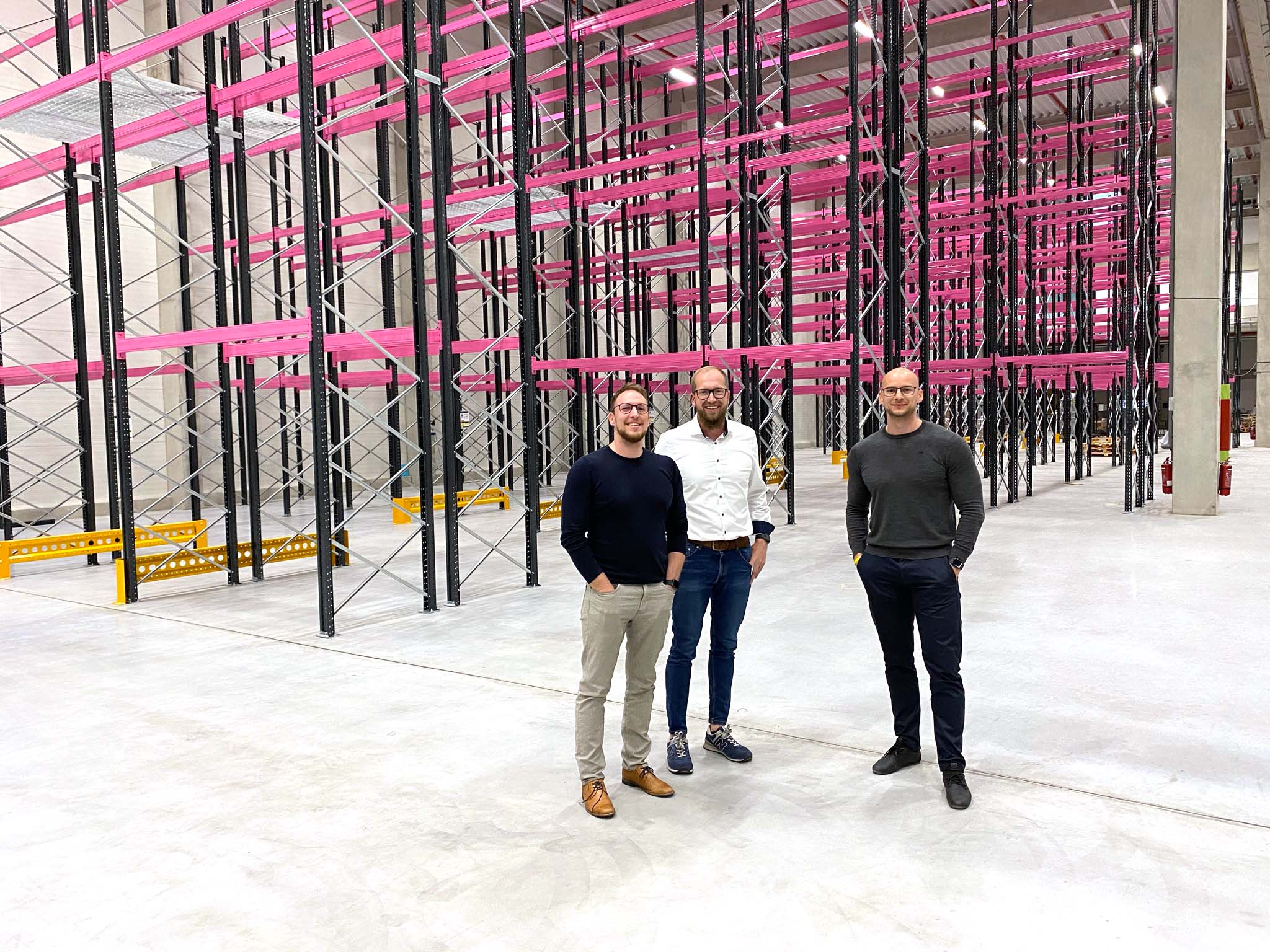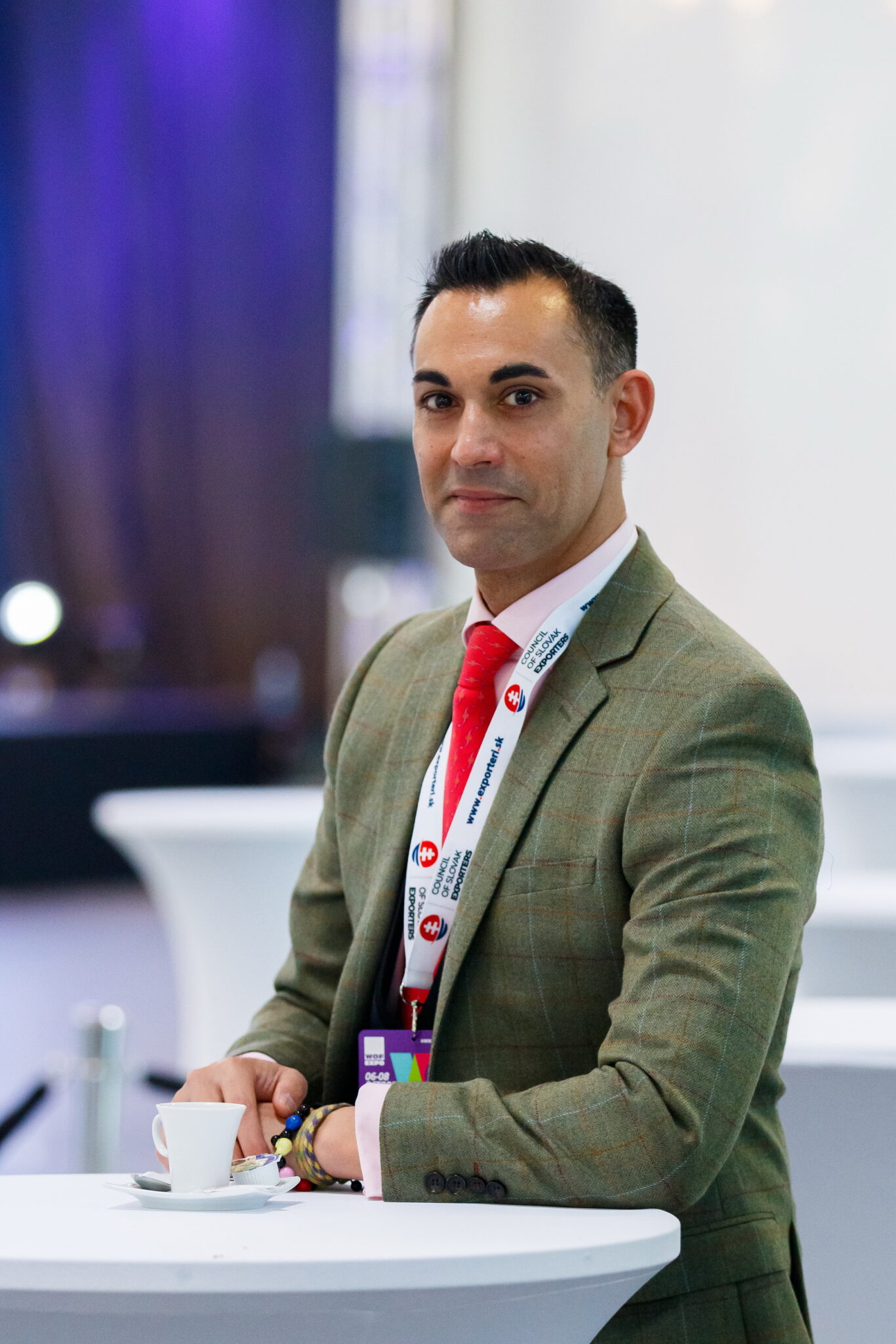On Tuesday November 14th the international transport and logistics provider cargo-partner officially launched the construction of the third warehouse hall at its iLogistics Centre in Dunajská Streda. The expansion will almost double the storage capacity from the current 27,600 to 50,000 pallet spaces. Upon completion, cargo-partner will create 60 to 70 additional jobs at the new facility.
cargo-partner has been operating in Slovakia for 30 years and is one of the most successful freight forwarding providers in the country. The company earned a turnover of nearly 140 million euro in 2022 and currently employs more than 200 logistics specialists across its branch offices in Bratislava, Dunajská Streda, Žilina, and Košice.
Boosting capacity
The iLogistics Centre in Dunajská Streda has been in operation since 2012, gradually expanding to meet growing customer demand for logistics solutions. The previous expansion in 2020 increased the warehouse capacity to 18,200 m². The construction of the third hall marks the fourth and final phase of the project, bringing the storage capacity of the logistics complex to 34,300 m² on a site of 60,000 m².
The new Class A warehouse building was designed with an emphasis on energy efficiency. It will feature a racking system with 22,400 pallet spaces spread over 14,600 m², as well as a structurally separated area of 1,500 m² that can serve as a dust-free warehouse or a rework zone. The facility will include 22 loading ramps and two drive-in gates for efficient loading and unloading. There are also plans to install a second KLT washing machine in addition to the one at the existing facility.
Direct connection to Metrans terminal
The warehouse’s strategic location and direct connection to the Metrans intermodal terminal allow cargo-partner to reduce handling time by one to two days, resulting in significant ecological and economic advantages. “Thanks to our connection to the intermodal terminal, we can unload containers arriving by train from the ports of Bremerhaven, Hamburg, Koper, Rotterdam, Trieste, and Istanbul directly into our warehouse, eliminating the need for truck transport. Our cross-dock hub has nine container loading and unloading gates as well as a separate gate for heavy and oversized goods,” said Tibor Majzún, Managing Director Slovak Republic and Regional Director North East Europe at cargo-partner. Currently, cargo-partner is the only company in Slovakia to provide this service.
Operations are scheduled to begin in the fourth quarter of 2024. In the first phase, cargo-partner will hire 20 new employees. Once the new warehouse hall is fully operational, this is expected to increase to 60-70 positions.
The official ground-breaking ceremony was attended by Dr. Johannes Wimmer, Ambassador of Austria to Slovakia, Mag. Bettina Trojer, Commercial Counsellor of the Austrian Embassy, and Ing. Alena Blahútová, Corporate Director Real Estate of ATL Immoinvest.
Mag. Stefan Krauter, Founder and CEO of cargo-partner, emphasized the importance of the iLogistics Centre: “Our Slovak team is a top performer in our group, and I am glad they have recognized and taken advantage of Dunajská Streda’s potential as a vital intermodal hub, turning it into a thriving logistics centre. It is now one of our most important rail cargo hubs in Europe, enabling us to deliver automotive components to leading OEMs in various Central European countries. With the addition of a third warehouse hall, we are continuing our success story with yet another prime logistics location in Dunajská Streda. The expansion will be managed by the Central Eastern European logistics real estate specialist ATL.”
Focus on warehousing and logistics
The cargo-partner iLogistics Centre in Dunajská Streda currently has a capacity of 27,600 pallet spaces on 18,200 m², with over 11,000 m² dedicated to customs bonded warehouse space. Based on years of experience in handling automotive and industrial components, high-tech machinery as well as oversized cargo and project shipments, the cargo-partner team provides a range of value-added services for various industries. In addition to the warehouse in Dunajská Streda, cargo-partner also operates a second warehouse in Bratislava with a capacity of 14,000 pallet spaces on 8,200 m².




